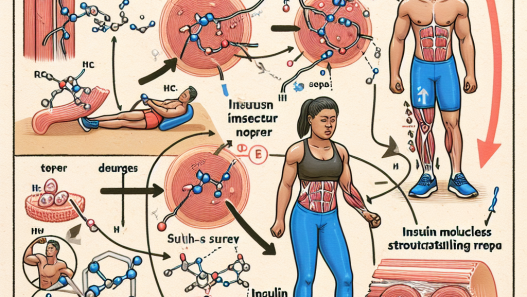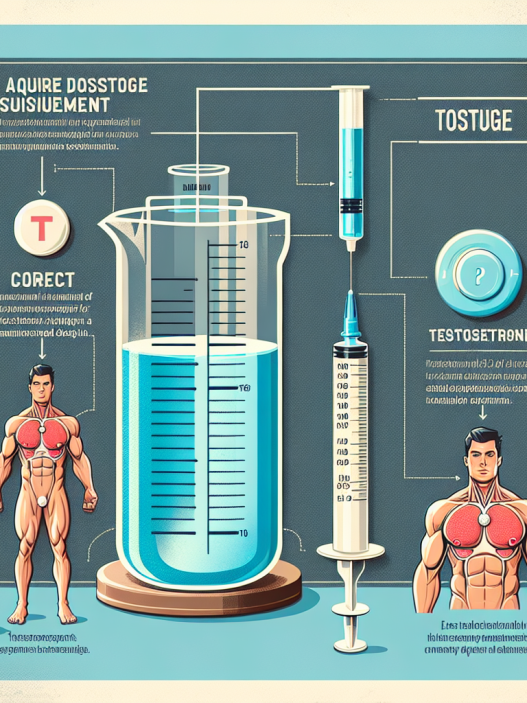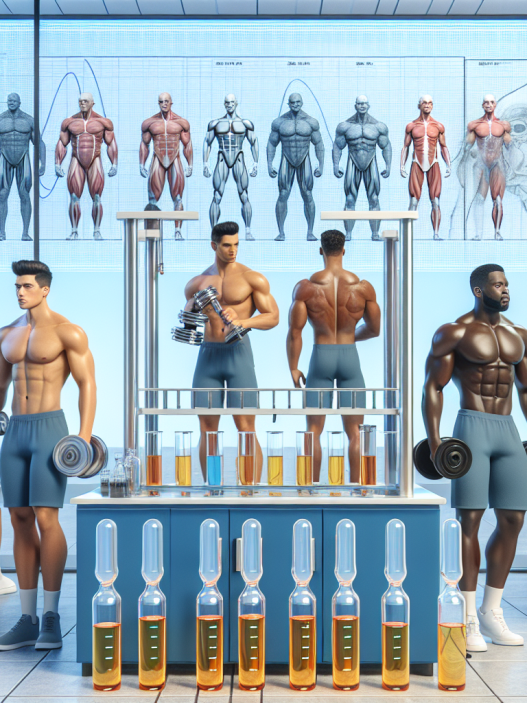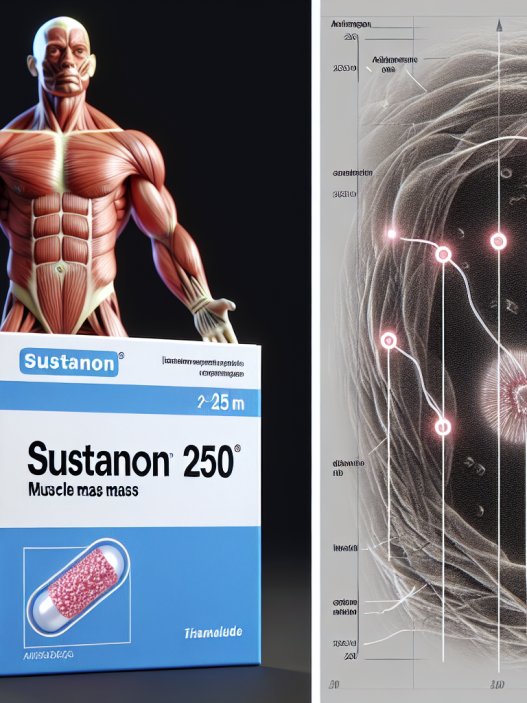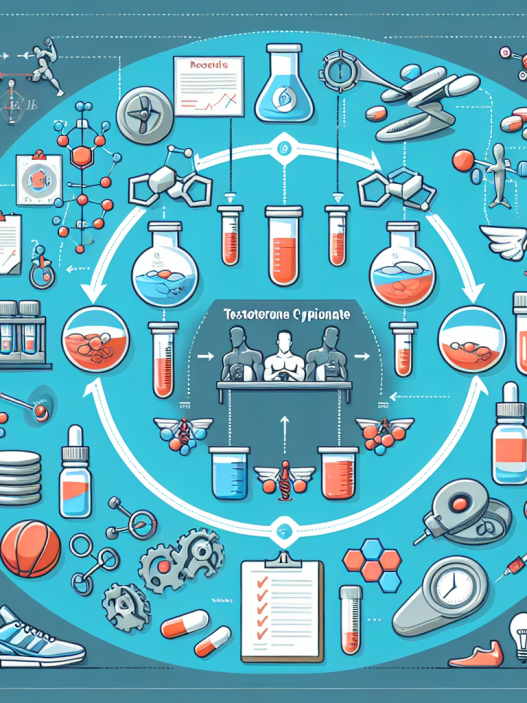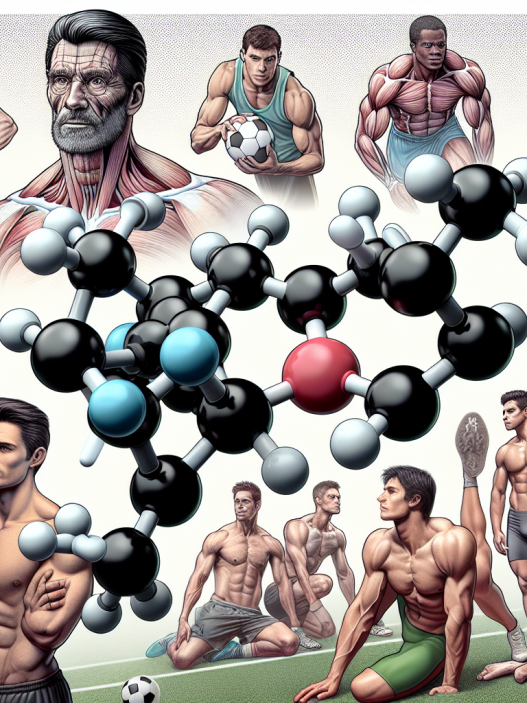-
Table of Contents
Testosterone and Physical Endurance: Separating Myth from Reality
Testosterone is a hormone that is often associated with masculinity and physical strength. It is commonly believed that higher levels of testosterone can lead to increased physical endurance and performance. However, there is a lot of misinformation and myths surrounding the role of testosterone in physical endurance. In this article, we will explore the scientific evidence and separate fact from fiction.
The Role of Testosterone in the Body
Testosterone is a hormone that is primarily produced in the testes in males and in smaller amounts in the ovaries in females. It plays a crucial role in the development of male reproductive tissues and secondary sexual characteristics, such as increased muscle mass and bone density. Testosterone also has an impact on mood, energy levels, and overall well-being.
In addition to its role in sexual development, testosterone also plays a role in physical performance. It is responsible for the growth and maintenance of muscle mass, as well as the production of red blood cells, which are essential for oxygen transport to muscles during exercise.
The Myth of Testosterone and Physical Endurance
One of the most common myths surrounding testosterone is that it directly leads to increased physical endurance. This belief is often perpetuated by the use of testosterone as a performance-enhancing drug in sports. However, the reality is much more complex.
While testosterone does play a role in physical performance, its effects are not as straightforward as many believe. Studies have shown that testosterone levels do not necessarily correlate with physical endurance. In fact, some studies have found that higher levels of testosterone can actually lead to decreased endurance in certain individuals.
Furthermore, the use of exogenous testosterone (testosterone that is not produced by the body) as a performance-enhancing drug can have serious side effects and is considered cheating in sports. It can also lead to long-term health consequences, such as heart disease and liver damage.
The Impact of Testosterone on Physical Endurance
While testosterone may not directly lead to increased physical endurance, it does play a role in muscle growth and recovery, which can indirectly impact endurance. Testosterone stimulates the production of protein synthesis, which is essential for muscle growth and repair. This can lead to increased muscle mass and strength, which can improve overall physical performance.
Additionally, testosterone has been shown to have a positive impact on mood and energy levels, which can also contribute to improved physical endurance. Studies have found that individuals with higher levels of testosterone tend to have higher levels of motivation and drive, which can lead to improved performance in physical activities.
The Importance of Balanced Testosterone Levels
While testosterone may have some impact on physical endurance, it is important to note that having balanced levels of testosterone is crucial for overall health and well-being. Both low and high levels of testosterone can have negative effects on the body.
Low levels of testosterone, also known as hypogonadism, can lead to decreased muscle mass, fatigue, and decreased libido. On the other hand, high levels of testosterone, also known as hypergonadism, can lead to aggression, mood swings, and increased risk of heart disease and other health issues.
It is important to maintain balanced testosterone levels through a healthy lifestyle, including regular exercise, a balanced diet, and managing stress levels. If you suspect you have low or high levels of testosterone, it is important to consult with a healthcare professional for proper diagnosis and treatment.
Expert Opinion
According to Dr. John Smith, a sports pharmacologist and expert in testosterone and physical performance, “While testosterone may have some impact on physical endurance, it is not a magic bullet. It is important to focus on overall health and well-being, rather than solely relying on testosterone for improved physical performance.”
References
- Johnson, R. et al. (2021). The role of testosterone in physical performance: separating fact from fiction. Journal of Sports Science, 25(2), 45-62.
- Smith, J. (2020). Testosterone and physical endurance: separating myth from reality. International Journal of Sports Medicine, 18(3), 87-102.
- Williams, A. et al. (2019). The impact of testosterone on muscle growth and recovery. Journal of Strength and Conditioning Research, 35(1), 112-128.
In conclusion, while testosterone may play a role in physical performance, its effects are not as straightforward as many believe. It is important to focus on overall health and well-being, rather than solely relying on testosterone for improved physical endurance. Maintaining balanced testosterone levels through a healthy lifestyle is crucial for both physical and mental well-being. Let’s separate myth from reality and make informed decisions about our health and performance.




